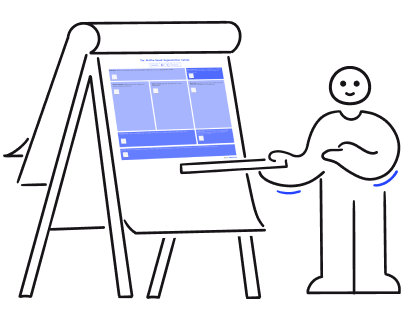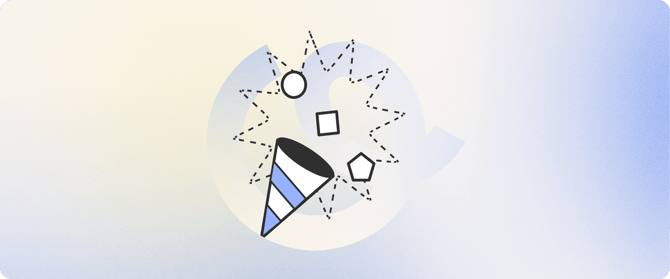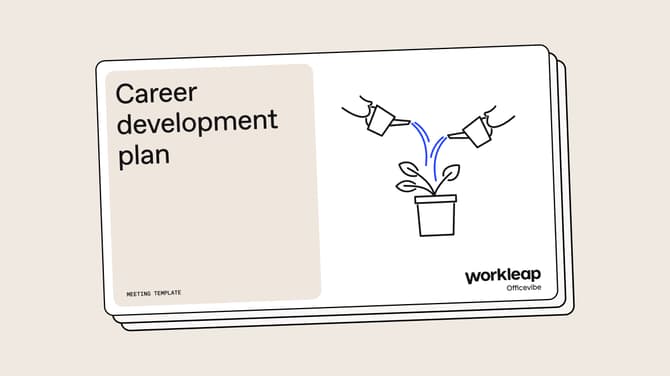Empower your organization with the skills-based canvas.

What's in this article
No one likes to be called “soft” or a “softie.” But from where we’re standing, being “soft” is a formidable asset. Soft skills are among the hardest to learn or master but are some of the best skills to have. Of course, strong people skills can have a positive impact on our personal lives. But in today’s ever-changing — and sometimes volatile — world of work, these valuable interpersonal skills can also be a differentiator in our professional success.
Skills like effective confrontation, empathy, and patience are not soft skills. They are human skills, and they must be learned. Organizations often overlook their best internal leaders because they don't place enough value on these crucial interpersonal qualities. As a result, company leadership suffers.
– Simon Sinek, There’s No Such Thing as “Soft Skills”
Modern businesses have moved past the ineffective micromanagement and rigid top-down structures of the past. Great leaders know that success is a team sport. More than ever, interpersonal relations are the lifeblood of organizations that don't want just to survive but thrive. Why? Because leaders and teams with strong communication, collaboration, and conflict management skills are better equipped to handle the challenges and opportunities ahead of them.
What exactly are soft skills?
Before we jump ahead, here’s a quick overview of what, exactly, we mean by soft skills. While hard skills are the technical abilities people have that make them qualified for certain jobs or professions, soft skills are the factors beyond that. They’re the traits that make someone a uniquely good fit for a team, or the right type of person to lead a group.
You can think of soft skills as one part emotional intelligence, one part communication and leadership styles, and one part our behaviors, habits, and how we show up in our day-to-day. In fact, soft skills can include a pretty broad range of qualities and abilities, like:
- Adaptability and resilience
- Leadership and influence
- Communication (verbal and non-verbal)
- Critical thinking and analytical skills
- Conflict management
- Problem solving and initiative
- Negotiation skills
- Teamwork and collaboration
- Active listening
While we’re not all naturally gifted in every one of these areas, we each have our own personal strengths. And just like hard skills, soft skills can be learned and developed. Keep reading to understand better how these abilities fit into the future of work and how you can build your soft skills!
Soft skills are the future of work
Artificial Intelligence and automation continue to disrupt the job market and how businesses get work done. And as the most repetitive tasks become automated, reskilling and upskilling will be inevitable for most workers. But this digital transformation is largely centered around hard skills. Things like data entry and product recommendations are real applications for machine learning, but a sense of humor or the ability to listen with empathy are harder to replicate. Humans will always beat machines at what makes them human in the first place.
As a result, soft skills will be among the most sought-after and futureproof skills in the workforce of tomorrow. Realistically, they’re already among the most important skills today. Employees and teams must be equipped to navigate constant change on a technological and interpersonal level.
Artificial Intelligence and automation continue to disrupt the job market and how businesses get work done. And as the most repetitive tasks become automated, reskilling and upskilling will be inevitable for most workers. But this digital transformation is largely centered around hard skills. Things like data entry and product recommendations are real applications for machine learning, but a sense of humor or the ability to listen with empathy are harder to replicate. Humans will always beat machines at what makes them human in the first place.
As a result, soft skills will be among the most sought-after and futureproof skills in the workforce of tomorrow. Realistically, they’re already among the most important skills today. Employees and teams must be equipped to navigate constant change on a technological and interpersonal level.
Soft skills dominate the top 10 professional skills of 2025 projected by the World Economic Forum. Included on the list are analytical thinking and innovation; active learning; creativity, originality, and initiative; critical thinking and analysis; leadership and social influence; emotional intelligence; and reasoning and problem-solving. Each and every one of these is a uniquely human — otherwise known as “soft” — skill.
The next generation expects their leaders to be soft (skilled)
While employees of all levels can benefit from developing their soft skills, leaders, in particular, must make it a priority. When you manage a team of people, you need to be able to connect with them on a human level, give feedback and delegate work with tact, and facilitate effective teamwork.
The world of work needs to evolve and adapt to shifting employee expectations and needs. And as new generations enter the workforce, they tend to send ripples of change through organizations. This is a good thing, because these changes impact not just the next generation’s employee experience, but everyone’s. Great Place To Work’s research finds that Gen Z wants these five things from their employers:
- Diverse and inclusive workplace
- Livable pay
- Mentally healthy and safe place to work
- Special meaning
- Warm welcome
Pay might be determined by HR and company policy, the rest of these factors are influenced by every person at an organization. And often, it’s team leaders who set the tone in the day-to-day employee experience. Managers who are tuned into their soft skill set are the ones best suited to create an environment that welcomes all different types of people warmly, makes them feel comfortable to bring their full selves to work, and ensures they know their work matters.
How companies can assess, improve, and invest in soft skills
It’s clear that soft skills are a core differentiator that can take a workforce from good to great. The good news is that they are skills — and skills can be learned! Here’s how you can help improve soft skills at your organization:
1. Offer opportunities for assessment
Before we can improve our soft skills, we need to understand what our strengths are, and which skills we want to build. Soft skills assessments can be done independently or with the input of others. Give employees and managers a chance to self-evaluate their skill set, and/or do peer assessments. The benefit of external feedback is that it can illuminate areas we might not see or recognize in ourselves.
Skills assessments can be done through surveys, quizzes, or feedback forms. Whatever approach you take, make it consistent so it’s easier to derive insights from the results. This is also a great way to understand where certain teams shine, and where there may be skill gaps throughout your organization.
2. Implement soft skills training
One of the most straightforward ways to boost your workforce’s soft skills is to offer training and resources. This might look like bringing in experts to run workshops once a quarter or investing in virtual learning experiences for employees.
Soft skills training could be around subjects like:
- How to give and receive feedback
- Fostering inclusion on your team
- Active listening techniques
- Public speaking best practices
- Conflict intervention and de-escalation tactics
Make sure employees know that training is available and that they’re encouraged to participate. Give people dedicated time outside of their regular tasks for professional development, including soft skills training. You might also make some training a part of new employee onboarding and incentivize existing employees to complete training with bonuses or rewards.
Leading by example: Employers like Mid-Day Squares, a plant-based snack food company from Montreal, are paving the way for a more open, honest, and soft-skilled future of work. The founders share their unfiltered experience of managing a business, navigating conflict, and attending therapy regularly on their viral instagram account. Remember that developing soft skills at your organization doesn’t mean having it all figured out — it’s about committing to making a consistent effort to learn, grow, and evolve over time!
3. Integrate soft skills development into team activities
To make soft skill development feel more natural, you can incorporate it into activities teams would otherwise participate in. This can take place in the context of a team’s day-to-day work or as a dedicated team building activity.
Ways to build soft skills organically:
- Swap out a happy hour or mini-putt for working on puzzles or an escape room. Soft skills involved: problem-solving, teamwork, and critical thinking.
- Run brainstorming sessions regularly with your team to come up with and pitch ideas for new projects and initiatives. Soft skills involved: creativity, collaboration, and innovation.
- Host a monthly “show and tell,” where employees can take turns sharing about a personal interest or hobby. Soft skills involved: communication, active listening, and building personal connections.
- Have employees take turns planning, running, and presenting at meetings. Soft skills involved: planning and organization, initiative, leadership, and social influence.
- Use the first 5 minutes of a recurring meeting for a simple “tell me about your weekend” or a unique conversation prompt. Soft skills involved: building personal connections and active listening.
Get teams to review their KPIs once a quarter, share their findings, and plan how they’ll apply their learnings going forward. Soft skills involved: analytical thinking, developing hypotheses, and future planning.
Using skill mapping to unlock your teams’ superpowers
As organizations move forward in a world of work that’s changing at lightning speed, upskilling, reskilling, and cross-skilling are more important than ever. And this includes doubling down on soft skill development.
What if you could get a clear view of the varied soft skills represented in your workforce? What if you had a tool to help you identify rising stars and future leaders on your teams?
We envisioned and built Workleap Skills on the belief that "soft skills" are the superpowers of the workplace of tomorrow. That's why we designed a skills management platform to help businesses maximize the potential of their most precious resources: their humans. You can use Skills to:
- Custom-build teams with complementary skill sets for specific projects
- Spot opportunities to cross-train and upskill employees
- Craft unique career paths and growth plans for your people
As we strive to help companies level up employee skill sets, we’d love to hear from you! Book a demo to chat with one of our product specialists about how Workleap Skills can help you tap into your team's skills instantly.
Monitor, support, and optimize your team's professional development.




